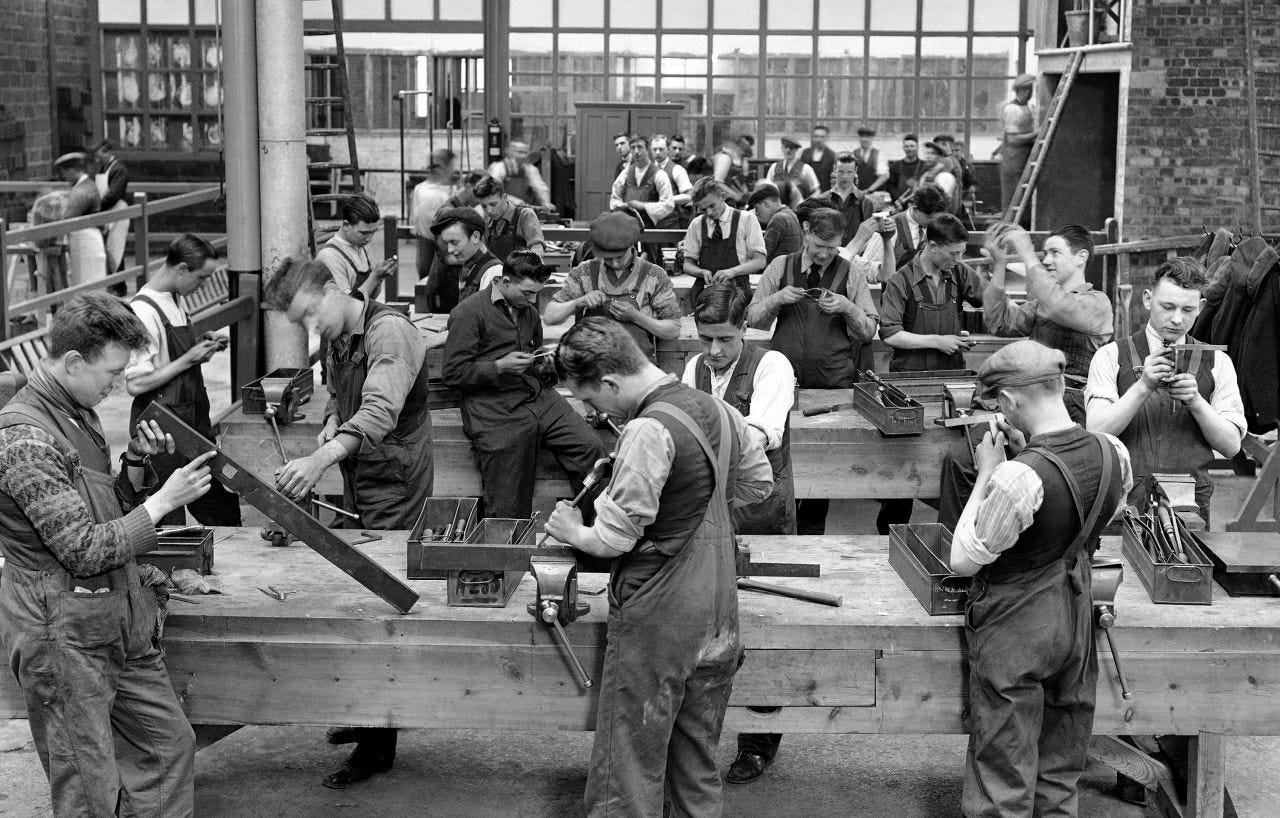Alienated Labor
a quasi-ethnographic experience
By Benjamin Morse
To enter the Duane Reade on the corner of 33rd and Broadway—an area flooded by unhoused persons, beguiled tourists and flagship retail—is to permeate the physical manifestation of estranged labor.
The term, coined by Karl Marx in the Economic and Philosophic Manuscripts, describes the conditions of labor in a system in which the item the worker services does not belong to him. What emerges is alienation—from the product, from the task, from the self.
After failing to secure steady work after a year of parent-sponsored financial security, I was forced into a low-wage position and exposed to conditions I often only explore behind the glow (and comfort, and safety, and ease) of a computer screen. I lasted less than two weeks.
When I entered the drug store on a Saturday morning, a disheveled manager (rumpled clothes askew, 5 o’clock shadow visible at 9 a.m.) called Mustafa greeted me. A crackling rendition of “Roam” by the B-52’s played softly over the store speakers—the 80’s wanderlust anthem ironically set the rhythm for an assembly line of silent employees mechanistically placing dated products on the sepia-toned shelves.
A woman at the register, well over 60-years-old and in her 14th year of work for the company, rang up a Plan B package enclosed in a theft-proof case and a wrinkled bag of Sour Patch Kids. She stood at her assigned spot after the customer left—kept standing there—staring zombie-like at the point-of-sale machine until the next consumer arrived.
I tried my hand at subtle forms of resistance. 25 minute bathroom breaks. A book tucked under the table. Extended lunch hours. Fellow associates balked. “They’re watching, you know” more than one person said, gesturing up at a fish-eye-like black lens, without once specifying who “they” are.
The most miserable part of the entire experience was how unnecessary all of it was.
In an advanced industrial society, as described by the Frankfurt School thinker Herbert Marcuse in One Dimensional Man, the kind and amount of work we engage in is irrational—for the material conditions are in place to not only reduce, but nearly eliminate, alienated exertion.
Drawn-out labor only appears necessary as a result of false needs (your same-as-last-model iphone, the car that looks a bit different and goes a bit faster) perpetuated in part by algorithmic mass media. If the means of production were collectivized, work would need only be marginal. Leisure time would become, well, just time.
I tried to map this Marcusian world onto the one in which I was currently suffering. What would it look like if we were liberated from the mundane, repetitive work central to unfettered capitalism?
The manager who once wielded a defunct price-adjustment gun, wandering fluorescent-lit aisles—all in the service of a massive retailer—could now saunter through the cavernous halls of the city’s museums, admiring the detailed mess of a Pollock. My fellow cashiers, liberated from the monotonous nature of stocking shelves and scanning items, could unleash the dynamism of their physicality in public parks, ones without a trace of concrete or kiosks.
My activist side wanted to gather everyone in the break room, telling them of the “it-could-be-this-good” kind of world, stirring them out of a blatant false consciousness. Pragmatism, and perhaps a bit of cowardice, prevailed. I quit and went home to write about the experience instead. Not a single worker from the store is likely to see this.


Out of curiosity, were the workers unionized?